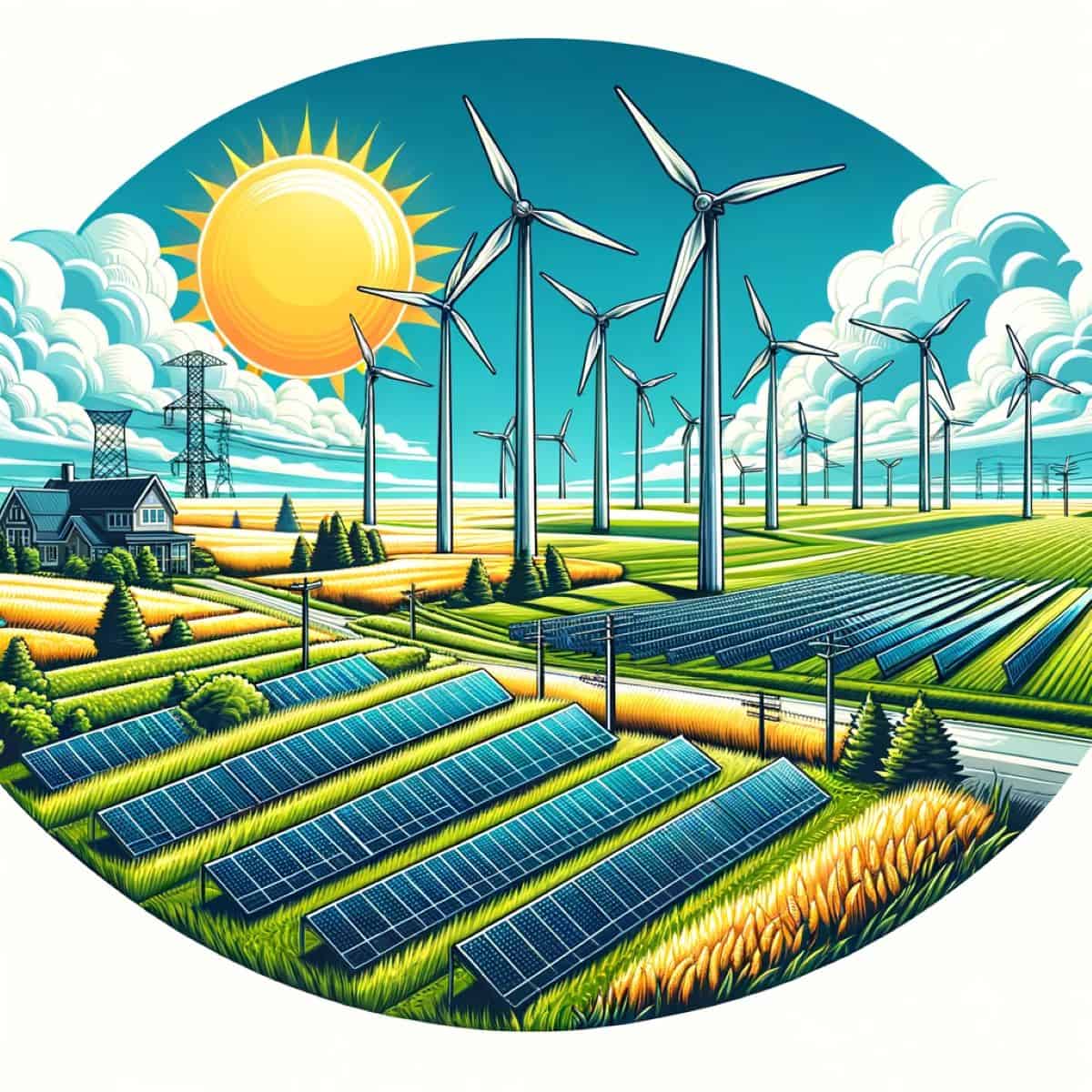From 2019 to 2022, wind and solar power in the United States provided $249 billion in climate and health benefits, according to a groundbreaking study. The study highlights the significant and often unseen positive impact of renewable energy on reducing greenhouse gas emissions and improving air quality.

The way things currently stand, we’re not doing enough to fight man-made global heating. That much is clear. But instead of focusing on the negatives, perhaps we should also look at the positives. Some 20 years ago, solar and wind energy were essentially negligible in the United States’ energy mix. Now, over 20% of the country’s electricity comes from renewable sources, and the figure is rising year after year.
Between 2019 and 2022 alone, the country’s use of wind and solar power cut CO2 emissions by 900 million metric tons — the equivalent of taking 71 million cars off the road each year. Oftentimes, however, it’s hard to estimate the concrete, immediate benefits of this. This is where the new study comes in: the researchers provide a comprehensive estimate of the avoided emissions and their associated benefits.
They found that wind and solar power significantly reduced emissions from the electric sector, leading to fewer premature deaths and substantial economic savings.
Quantifying the Benefits
The benefits of wind and solar power are quantified in two main categories: climate benefits and air quality benefits. Climate benefits are derived from the reduction in CO2 emissions, which contribute to global warming. Air quality benefits, on the other hand, result from the reduction in SO2 and NOx emissions, which are harmful to human health.
“Wind and solar electricity generation are critical for global decarbonization. Government support for wind and solar generators is often compared with their climate and air quality benefits. To accurately assess these benefits, assessments must be updated to reflect changes to the electricity system and to incorporate the newest research assessing the costs of emissions,” write Berkeley researchers and study authors Dev Millstein, Eric O’Shaughnessy, and Ryan Wiser.
SO2 and NOx emissions (both produced during fossil fuel combistion) contribute to respiratory and cardiovascular diseases. Their reduction has resulted in fewer premature deaths and significant health cost savings. The study estimates that wind and solar power prevented 1,200 to 1,600 premature deaths in 2022 alone, saving billions in healthcare costs yearly.
Importantly, the study managed to put a monetary value on generated renewable energy. The air quality benefits were valued at $36 per MWh for wind power and $17 per MWh for solar power, based on the reduction in health-related damages. The benefits, however, are even greater when it comes to climate.
A healthier climate saves money
Unlike previous assessments, this new approach leverages publicly available data and incorporates recent advances in understanding the social cost of carbon (SCC) and the health impacts of air pollution.
They used air quality models and climate models to calculate a total of $185 per metric ton of CO2. This number includes both health and climate benefits. In 2022, climate benefits alone amounted to $143 per MWh for wind power and $100 per MWh for solar power. This is how the researchers ended up with an estimate of over $80 billion a year for renewable energy.
These are all benefits that are often ignored when calculating the cost of transitioning to a clean economy. Analyses often focus on the immediate, direct cost, while ignoring this type of co-benefit.
The study also highlights regional variations in the benefits of wind and solar power. The levels of pollutant emissions and health impacts in different regions of the U.S. vary. Naturally, this leads to differences in the estimated benefits. For instance, regions with higher coal generation tend to benefit more from wind power due to the greater reduction in SO2 emissions.
Renewable energy is cheaper than we thought
One of the key strengths of this study is its methodological rigor and transparency. The researchers used a reproducible approach that relies on simple, publicly available data. This makes it easier to update the estimates annually and apply the methodology to other regions and countries.
The study authors hope that both the general public and policymakers will make note of this. The findings show that the substantial benefits of wind and solar power underscore the need for continued support and investment in renewable energy. Policymakers can use these findings to justify subsidies and incentives for wind and solar power, as well as to inform regulations aimed at reducing greenhouse gas emissions and improving air quality.
It’s important to recognize that the transition to renewable energy is not just about costs and investments. The benefits, as shown by this study, far outweigh the immediate financial costs. Wind and solar power not only contribute to a healthier environment but also provide substantial economic savings through reduced healthcare costs and climate mitigation.
The study was published in Cell Reports Sustainability.






